Arts & Entertainment
More ‘POP’ than ‘ART’
New Gaga effort catchy but hardly groundbreaking
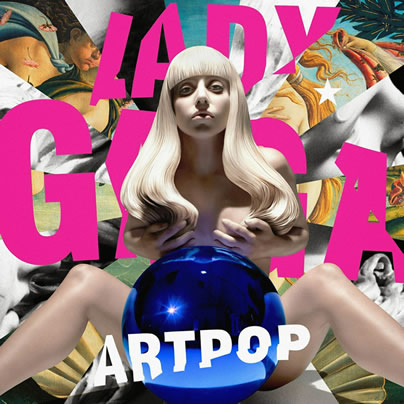
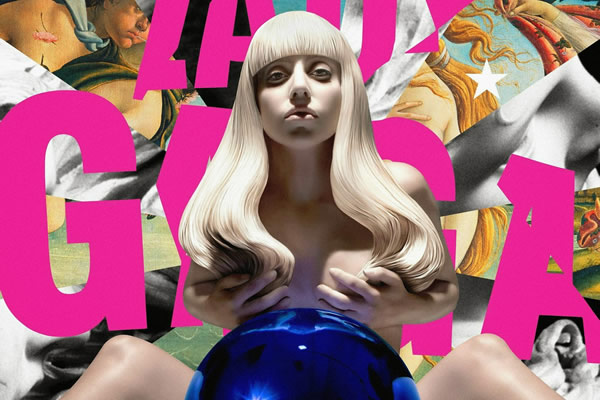
(Image courtesy Interscope)
Lady Gaga’s new album, “ARTPOP,” dropped in the U.S. this week. Her LGBT following is substantial enough that any new release from her is noteworthy, but if you’re looking for something fresh and unexpected, look elsewhere.
Taken merely as a series of instant dance hits, “ARTPOP” is perfect. The album sounds like a compilation of songs that almost made it onto her previous albums. Not surprisingly, it explores themes of fame and vanity, as her music has done countless times. Despite the lack of originality, as Gaga says herself in “Mary Jane Holland,” “It’s all right, because I am rich as piss.” Why change a working system?
Many songs from “ARTPOP” can and will be heavily featured on the radio, and there’s no shortage of new material for DJs to play. “MANiCURE” is one of these tracks, and, as the title suggests, it’s about how getting dolled up for a MAN can CURE insecurity. When the song comes on, finish your drink, hit the dance floor and ignore the lyrics. It’s one of several toe-tappers.
Most tracks use synthesizers and auto-tune liberally, making the album sound too robotic and over-produced, notably in the second single “Do What U Want” and in the title cut. “ARTPOP” is one of a few tracks that reference the album title, an effort to take as many opportunities as possible to remind listeners that pop music is art, a narrative Gaga has been pushing for years.
The first track, “Aura,” is a techno song with a flamenco-inspired guitar riff. Lyrically, the song compares Gaga to women who wear burqas, though she claims to wears one as a fashion statement, the first of many references to fashion on the album.
Another example is the track “Fashion!,” the second song in her discography by that name. In defense of “Fashion!,” it’s one of the few songs from “ARTPOP” where Gaga is singing rather than yelling into the microphone, albeit with a healthy amount of auto-tune. “Donatella” is simultaneously a critique of and an ode to the haughty lifestyle of models and Donatella Versace herself.
“Venus,” the first promotional single, is a dance track that alludes to the eponymous Roman goddess of love and sex. The cheeky bridge lists the planets and includes the line “Uranus, don’t you know my ass is famous?” It’s one of the more memorable moments from the album and is sure to incite giggles. For its music and lyrical themes, “G.U.Y.” may as well be called “Venus Part II,” as they’re almost indistinguishable to the casual listener. Together, they carry a Madonna-esque message of sexual empowerment.
Because the previous two tracks about sex were apparently too subtle, “Sexxx Dreams” is sure to be banned from all high school proms and be a club staple for the next year.
“Jewels N’ Drugs” features T.I., Too Short and Twista, and is a surprisingly catchy hip-hop track and a more refreshing part of the album. However, the hook’s lyrics are reminiscent of Ke$ha’s “Your Love Is My Drug,” while Gaga’s verse is yet another chance to emphasize her obsession with fame.
First single “Applause” may be the album’s worst offender. It’s the epitome of Gaga’s aforementioned fame obsession, even more so than “The Fame” from her debut album of the same name. The song actually features sounds of a cheering crowd. The pop-dance track hit No. 4 on the Billboard Hot 100, but fails to do anything more than beg her fans to keep loving her.
The album’s concepts may be tired, but it’s not without some great moments. A true gem is “Dope.” It’s very similar to her 2009 song “Speechless,” but for the best reasons. It focuses on Gaga’s vocal performance and piano skills and reminds fans of the talent underneath the spectacle.
If “Dope” is a callback to “Speechless,” “Gypsy” will remind fans of “The Edge of Glory,” as they’re both dance numbers with some of Gaga’s better vocal performances.
“Swine” is a change of pace for Gaga. It’s electronica without being a dance hit, but what’s most stunning is the intimate subject matter about a dark part of Gaga’s past. It’s angry almost to the point of being un-Gaga, but it’s a well-executed standout piece.
Ultimately, this new album fails to introduce fresh sounds the way Gaga’s first two full-length albums (“The Fame” and “Born This Way”) did. Revisiting the fame concept five years later feels tired and the new music does little to distinguish itself from previous efforts.
Does Gaga have enough good ideas to sustain a decades-long career or will she end up a late ‘00s/early ‘10s trivia question in the years to come? The jury’s still out on that, but revisiting concepts and musical styles this early in the game doesn’t bode particularly well.
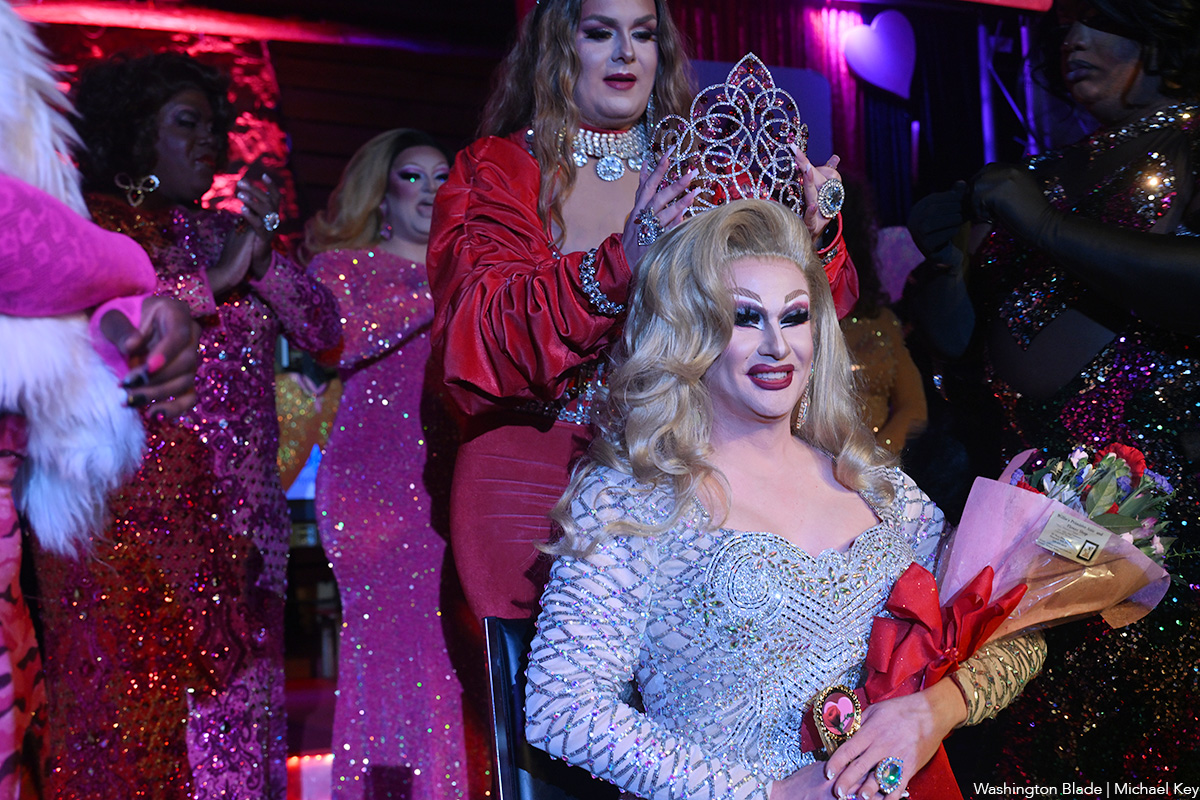
The 44th annual Queen of Hearts pageant was held at The Lodge in Boonsboro, Md. on Friday, Feb. 20. Six contestants vied for the title and Bev was crowned the winner.
(Washington Blade photos by Michael Key)
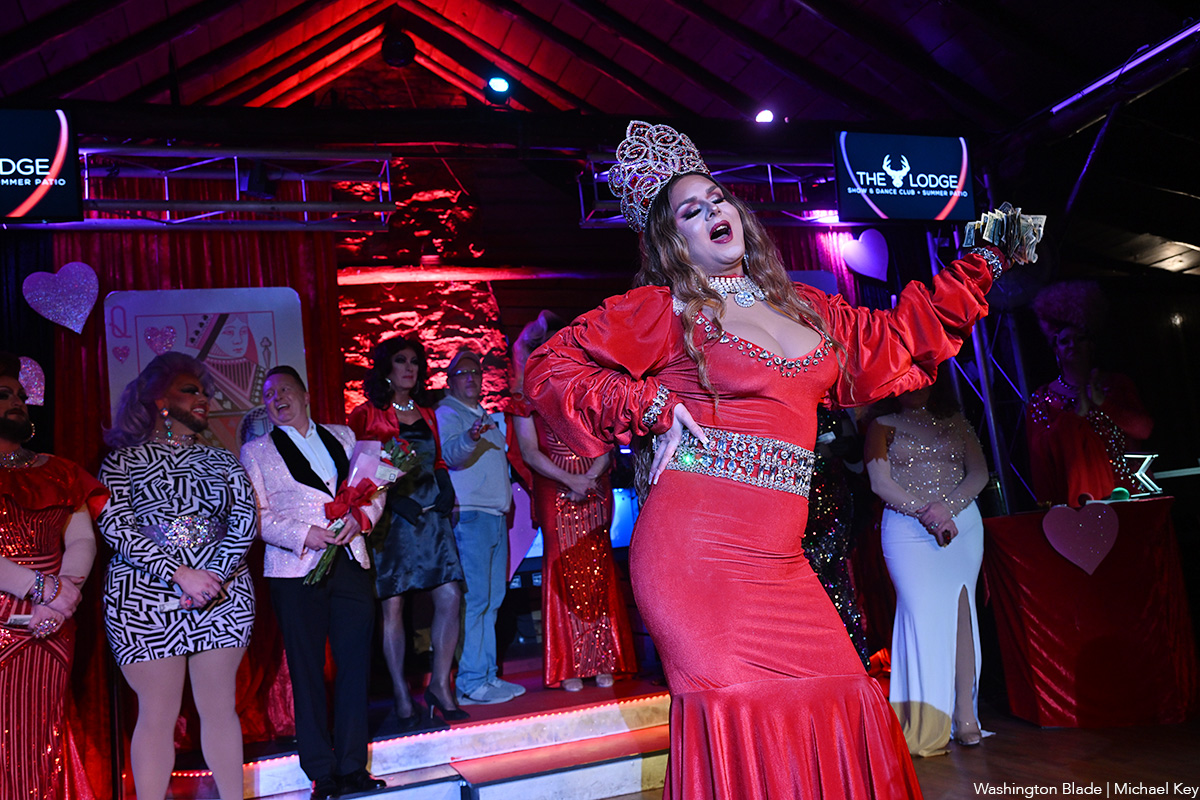
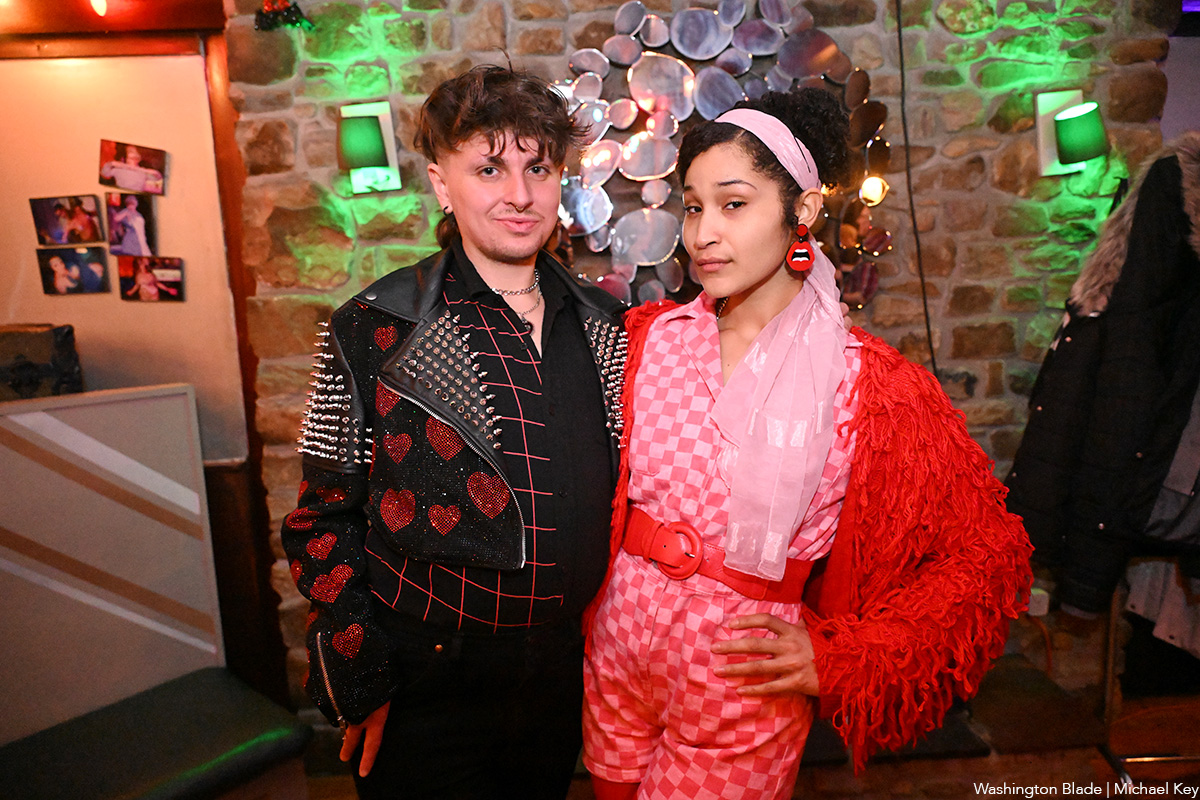
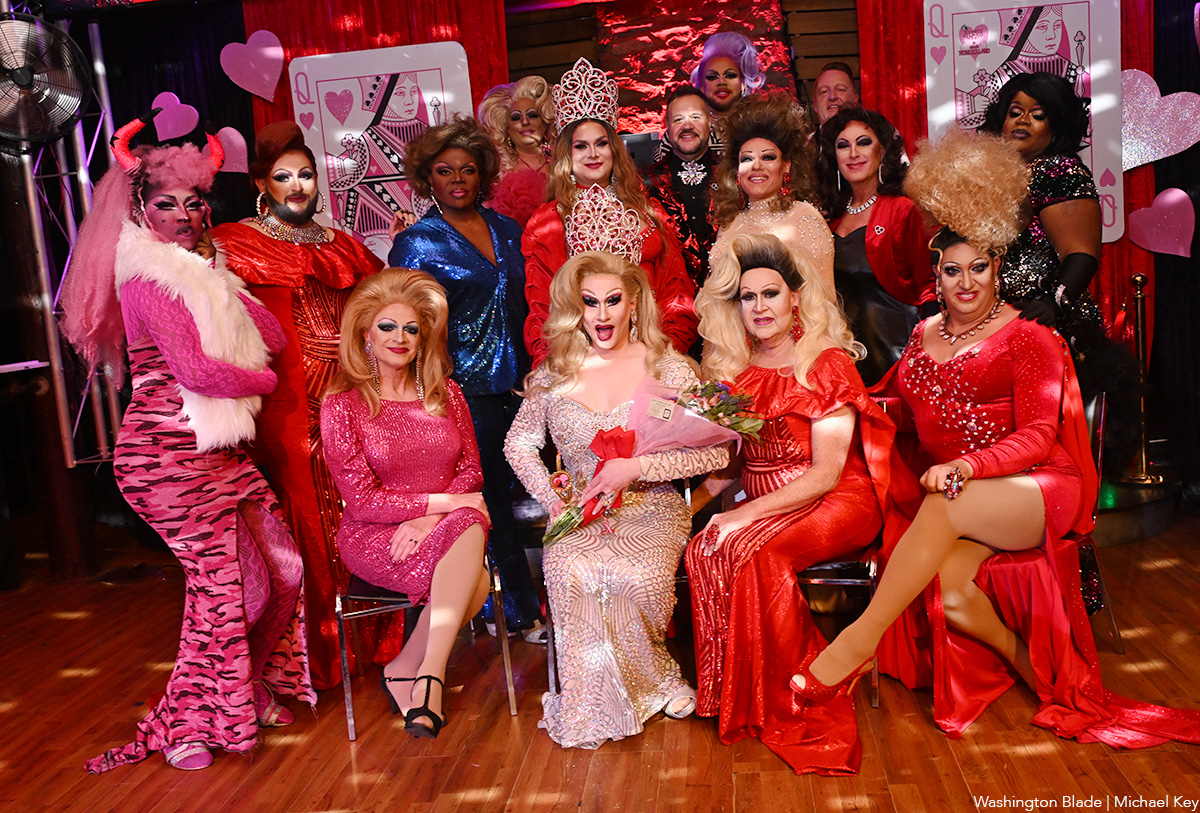
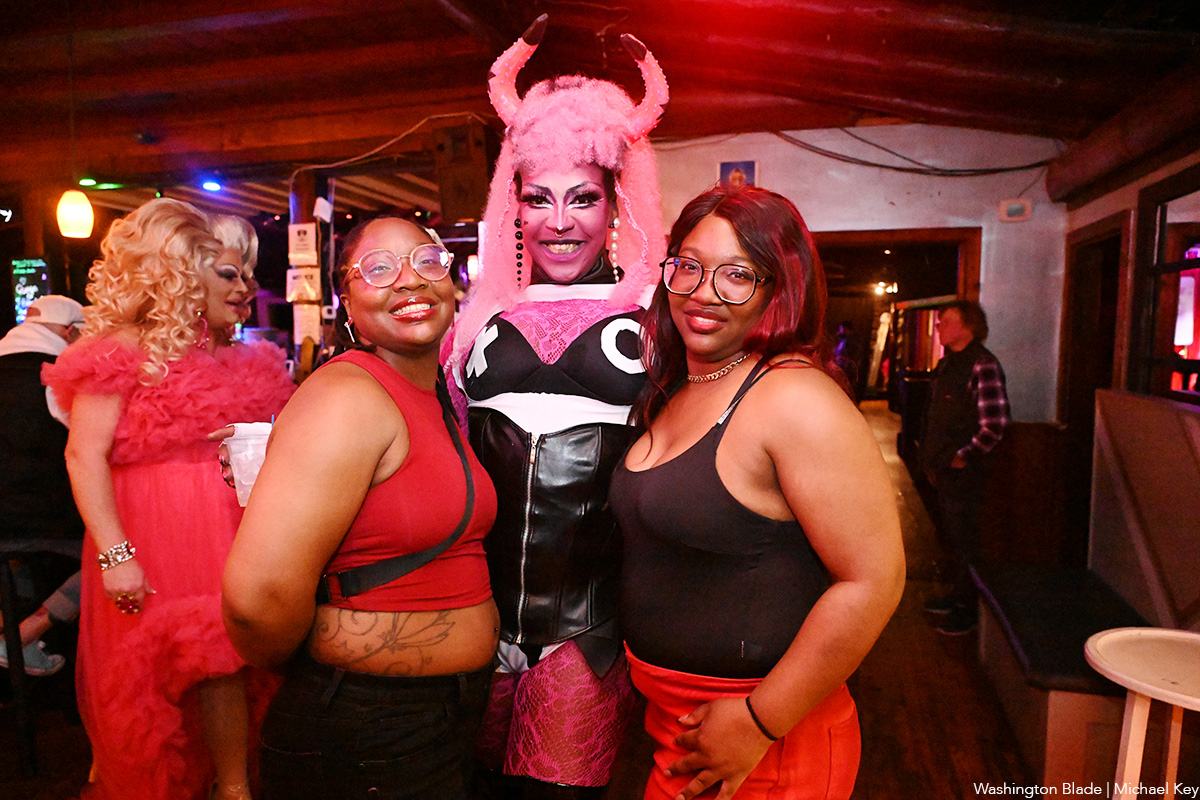
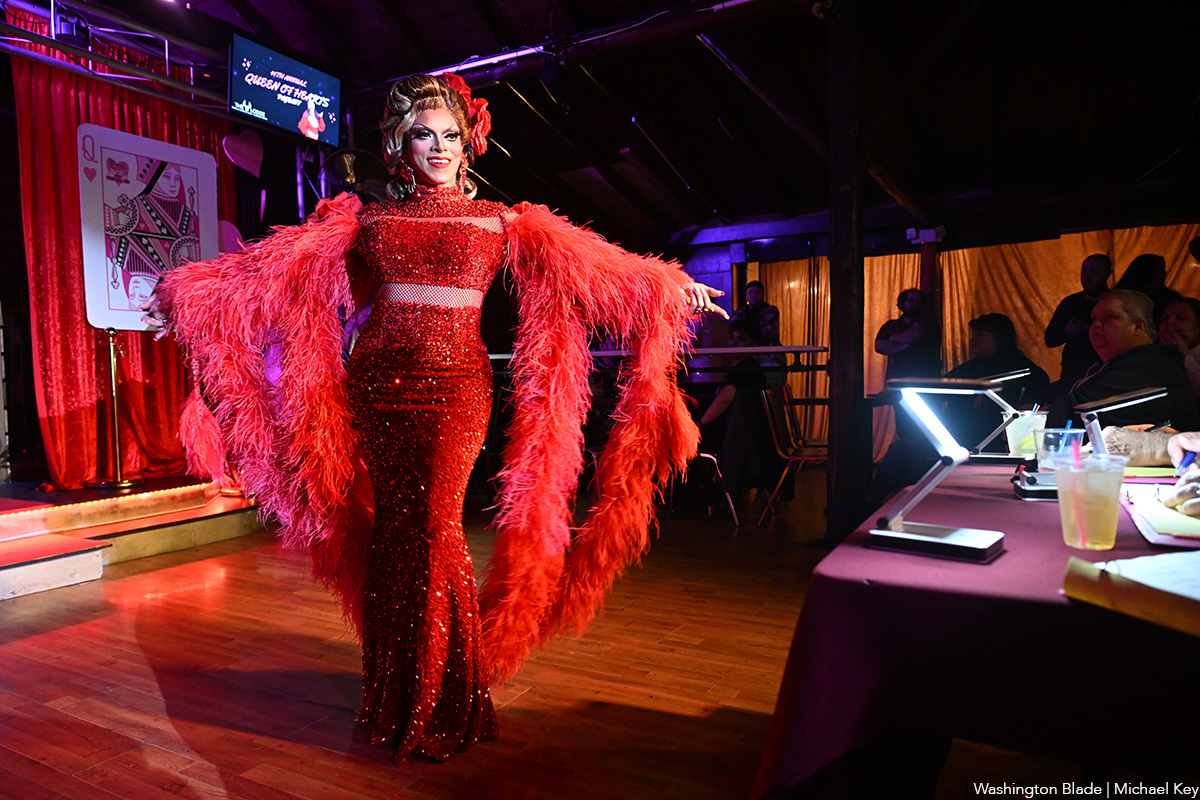
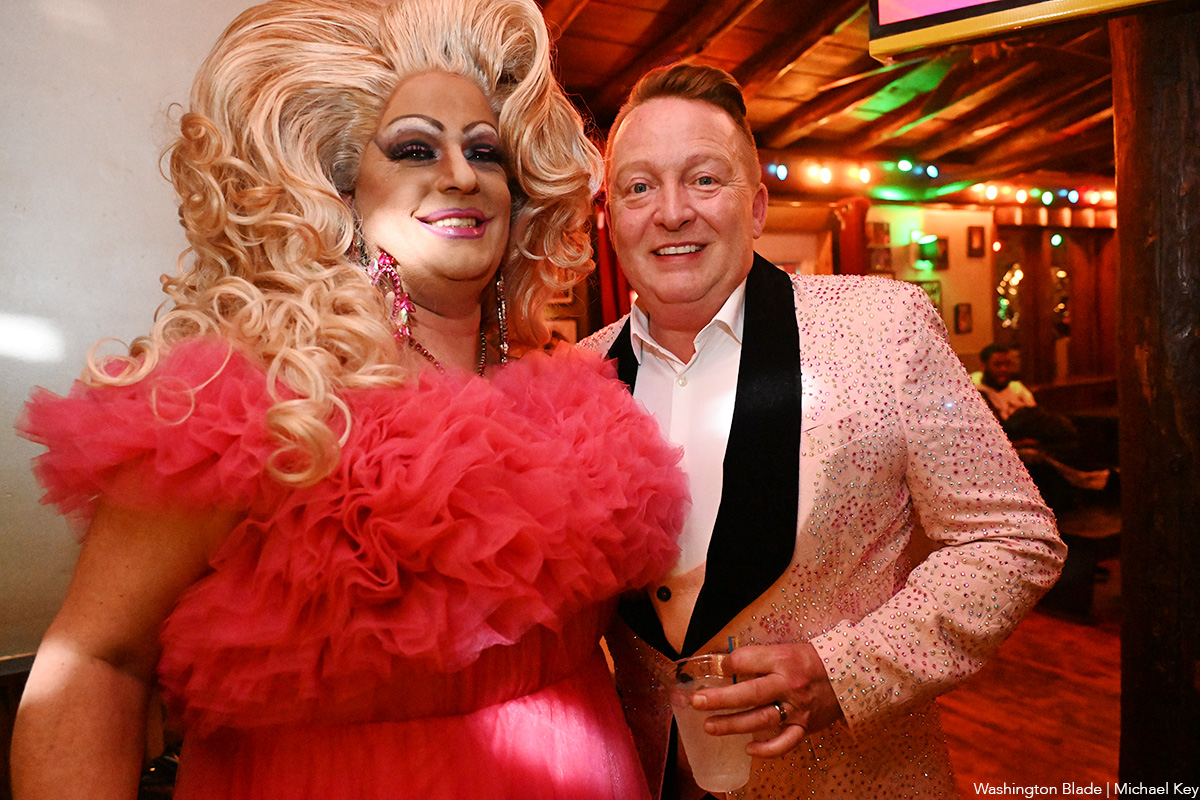
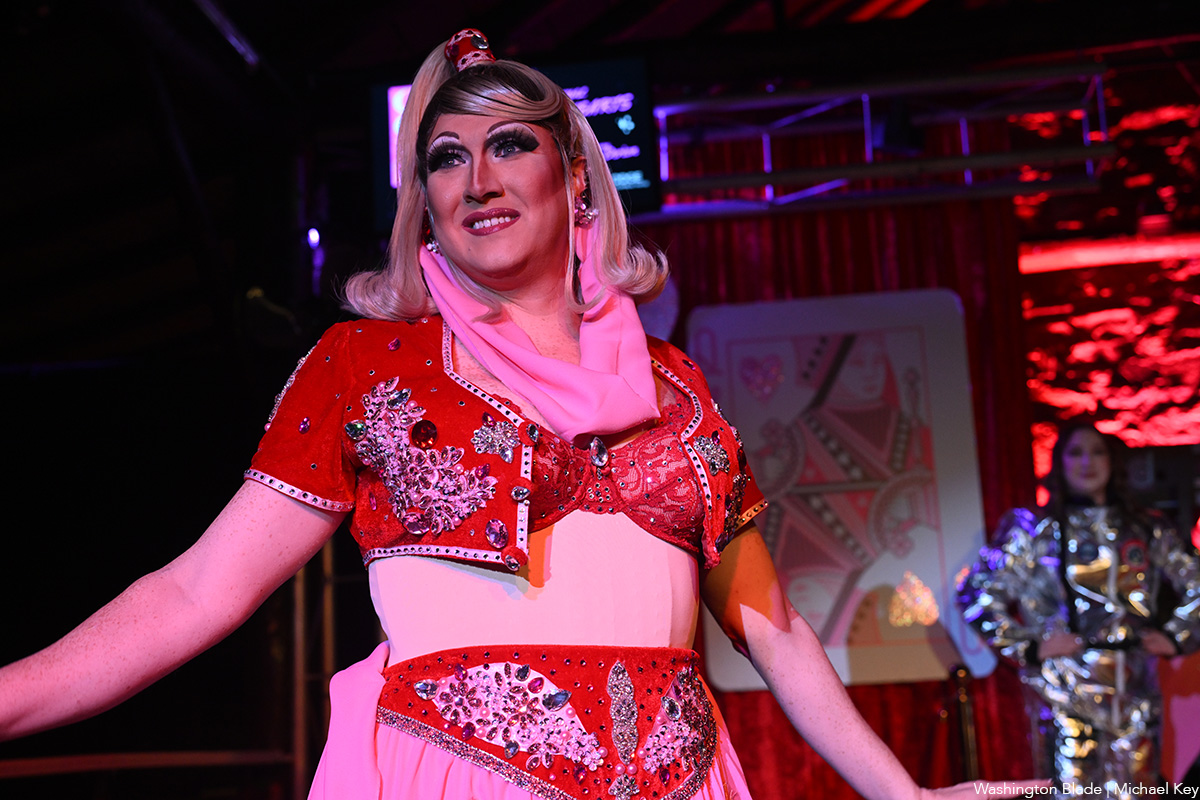
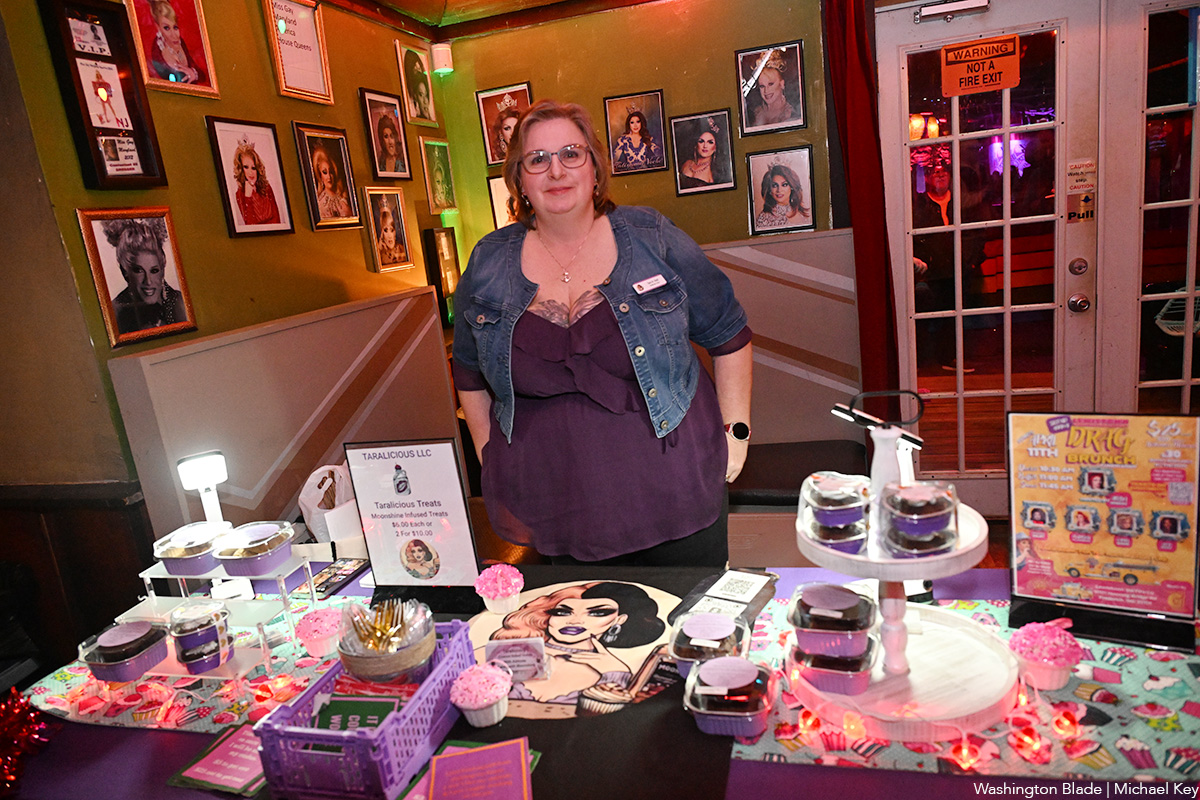
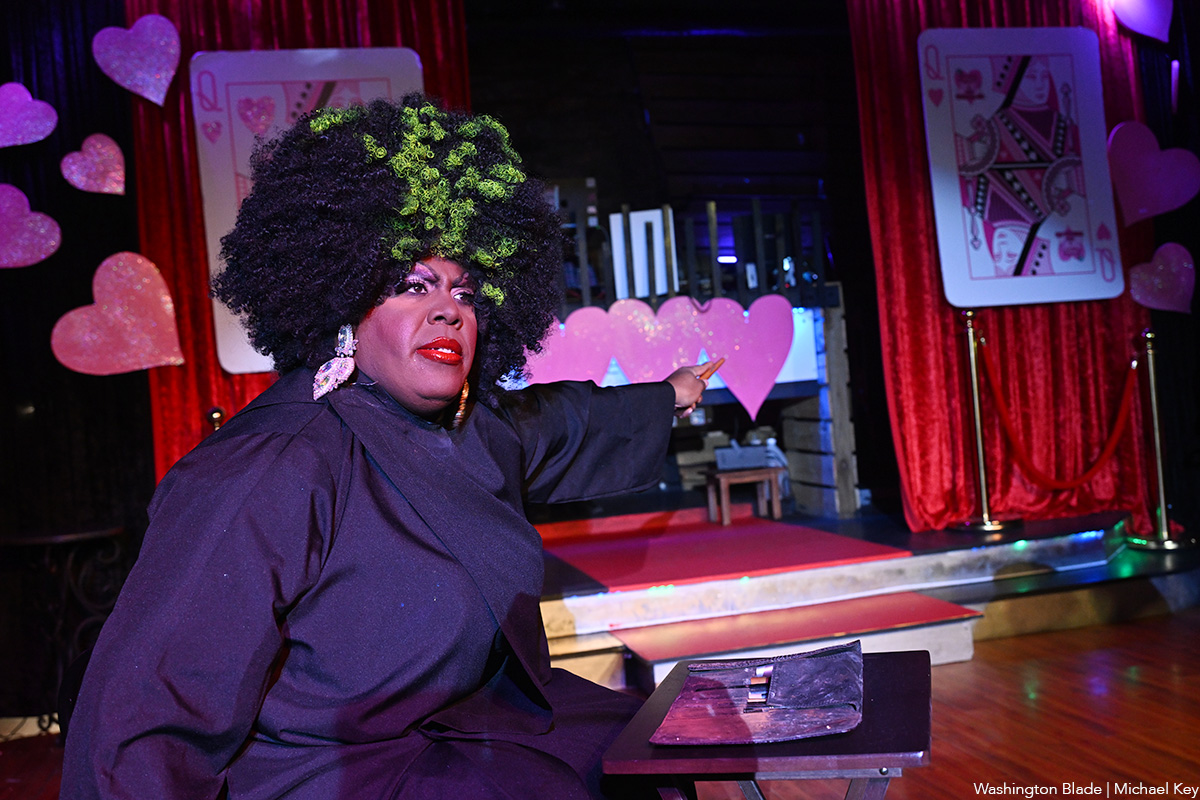
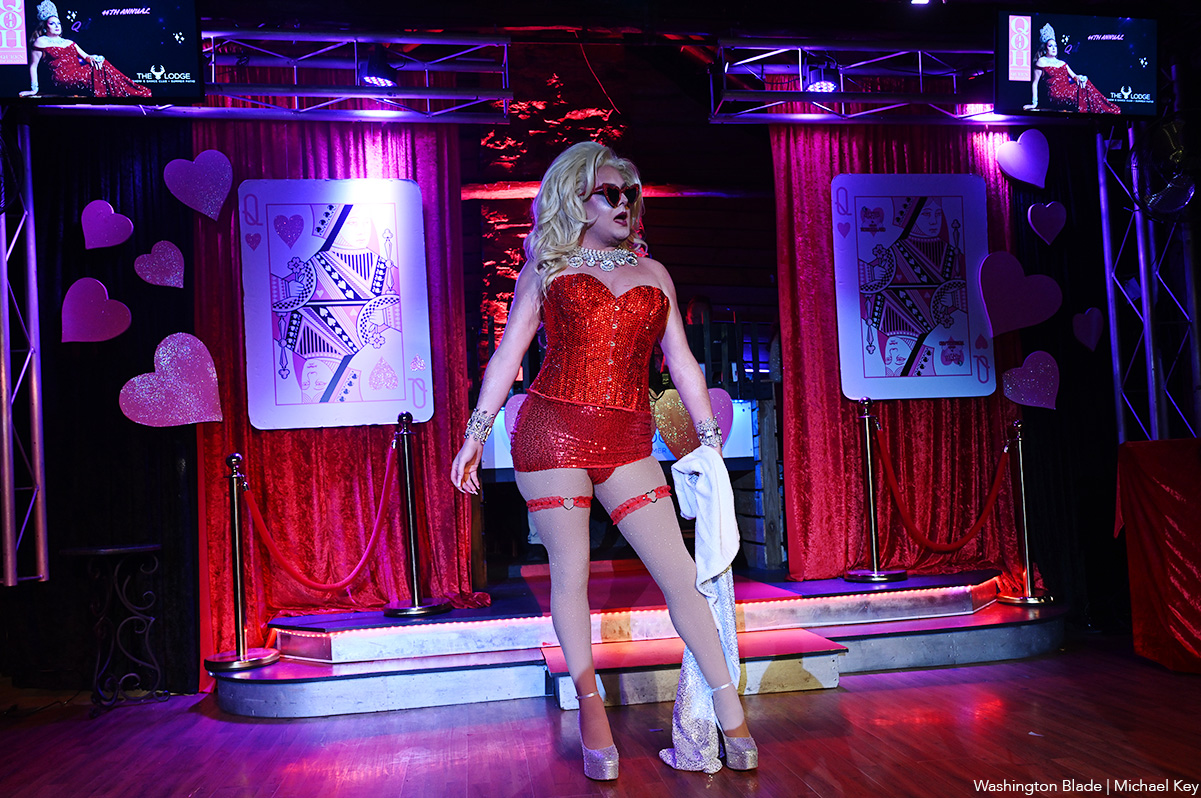
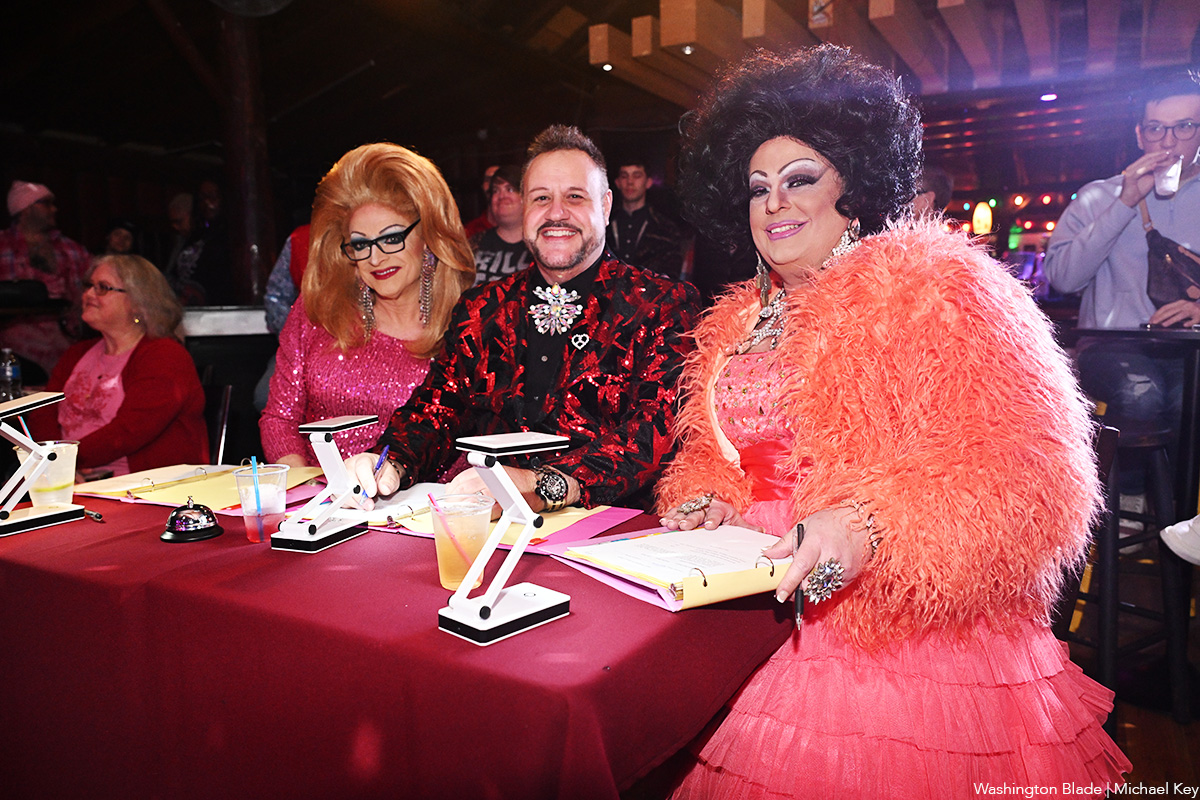
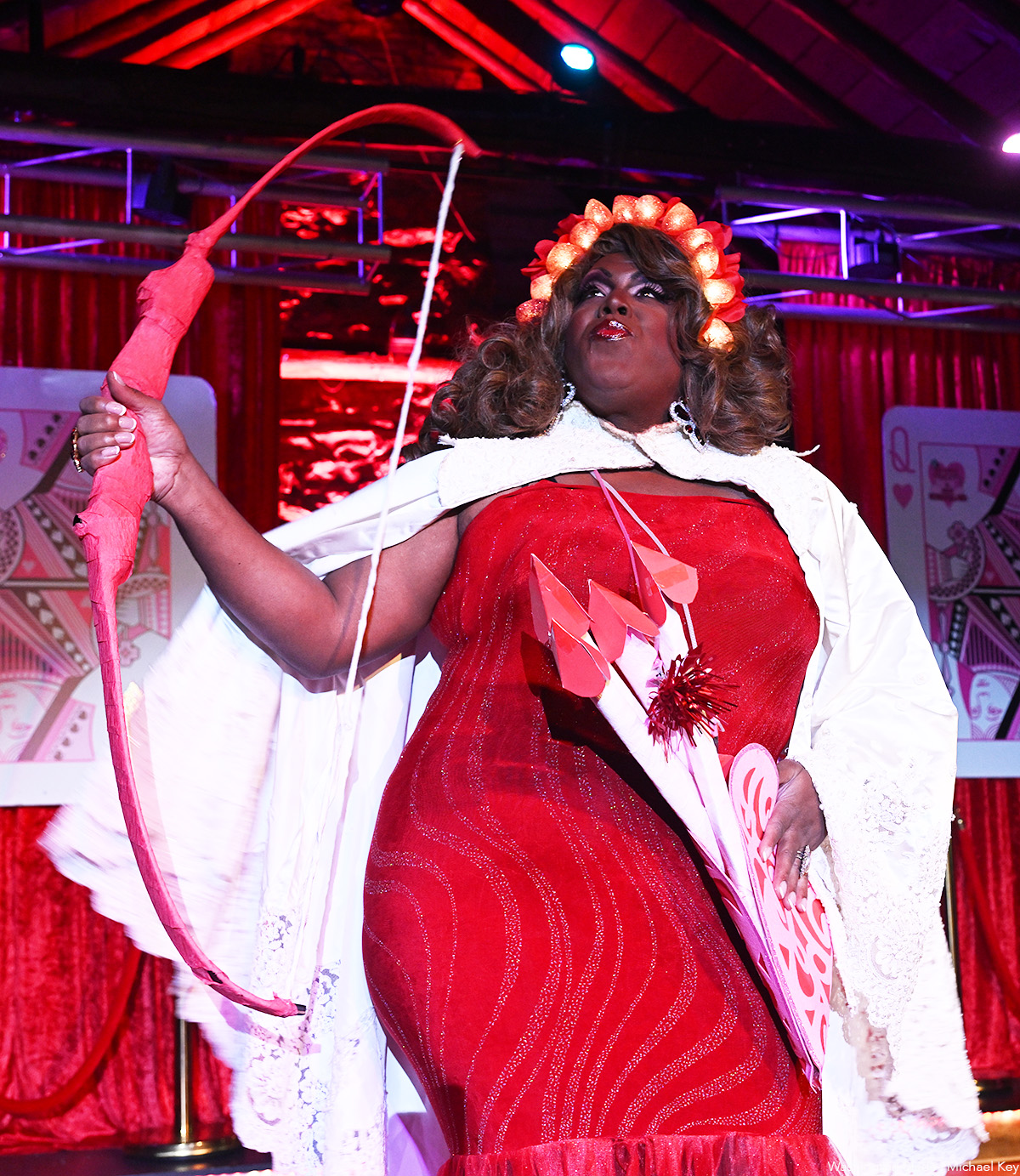
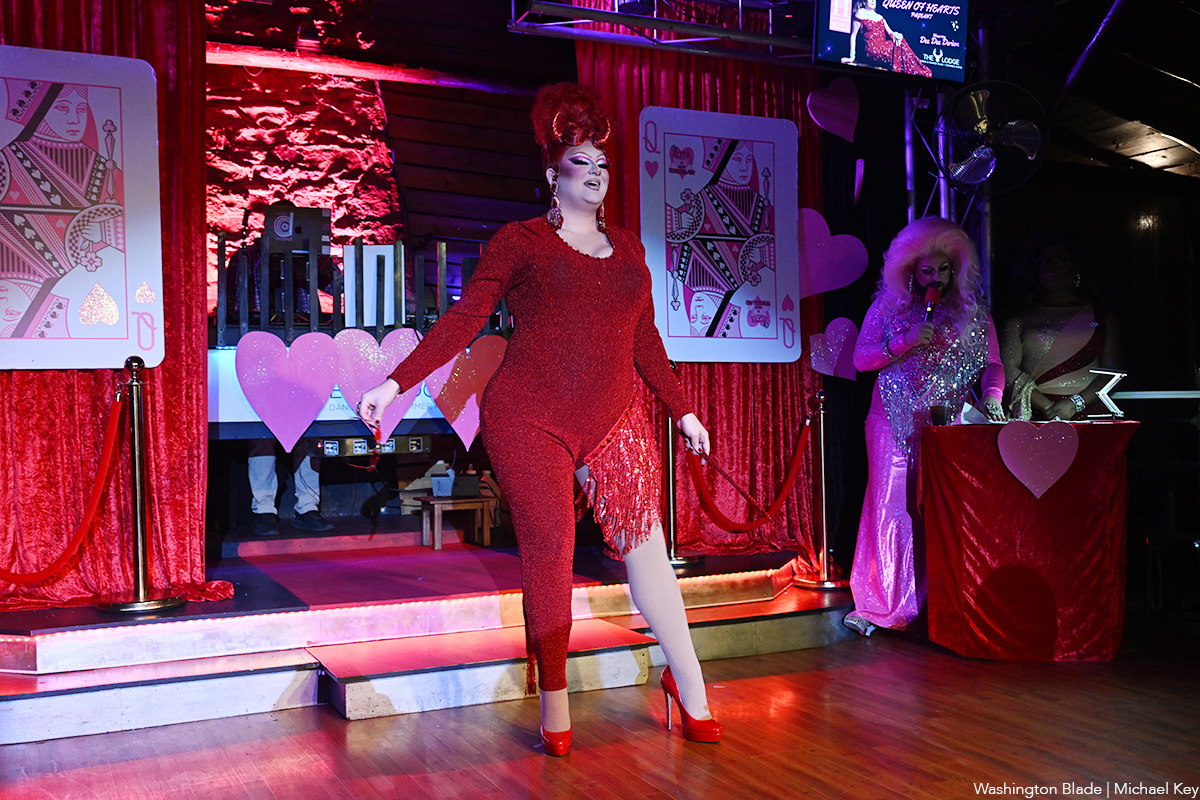
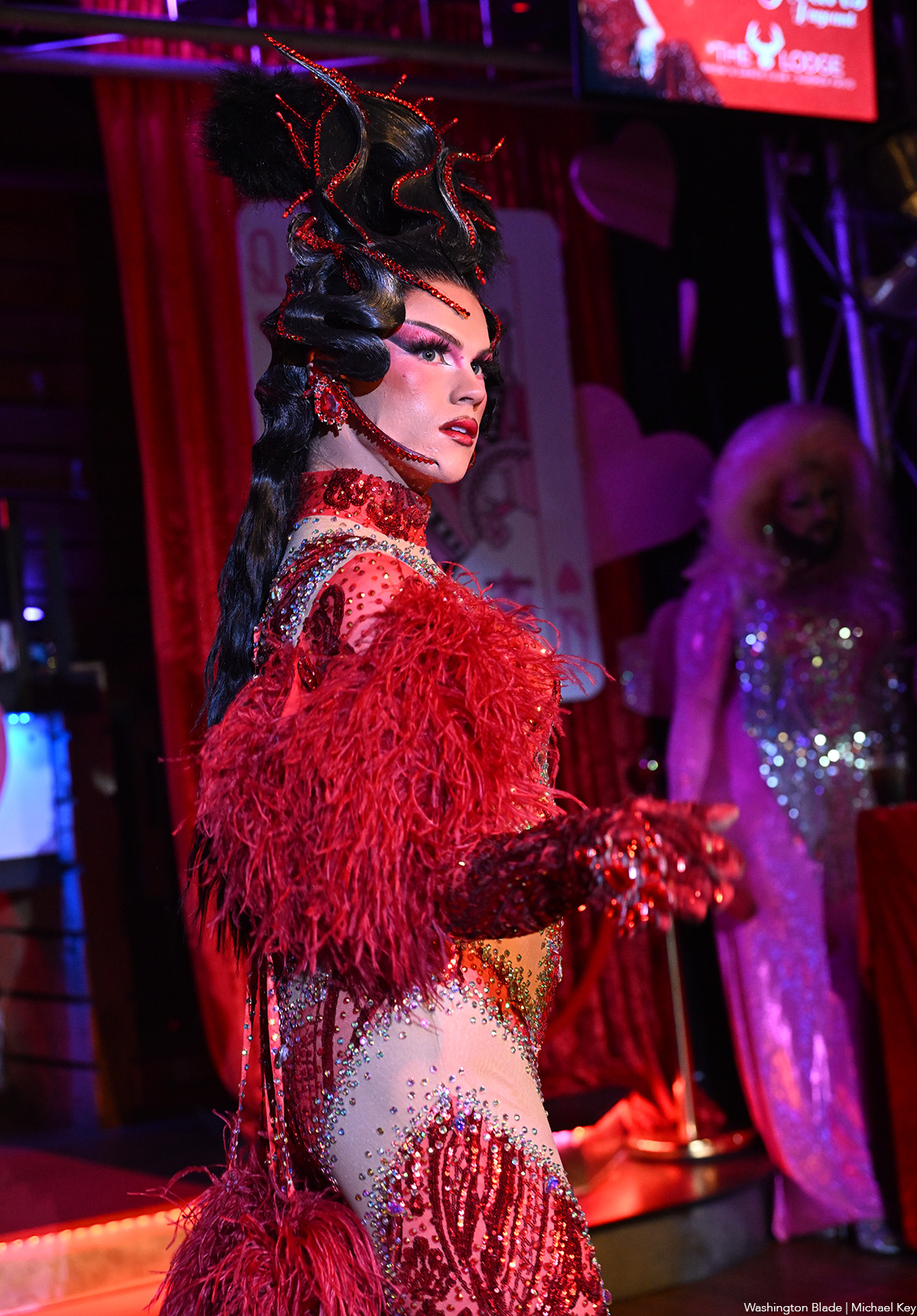
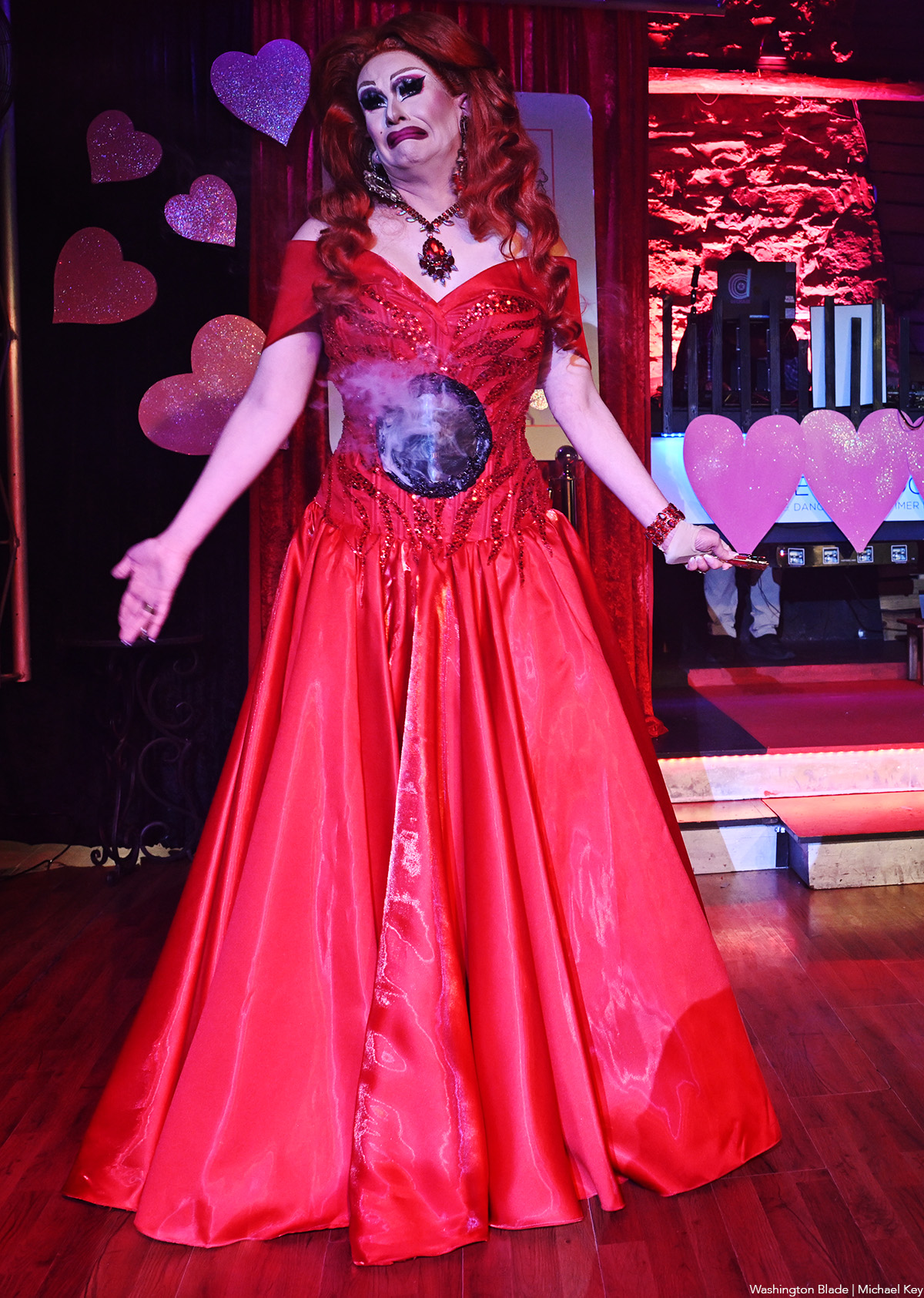
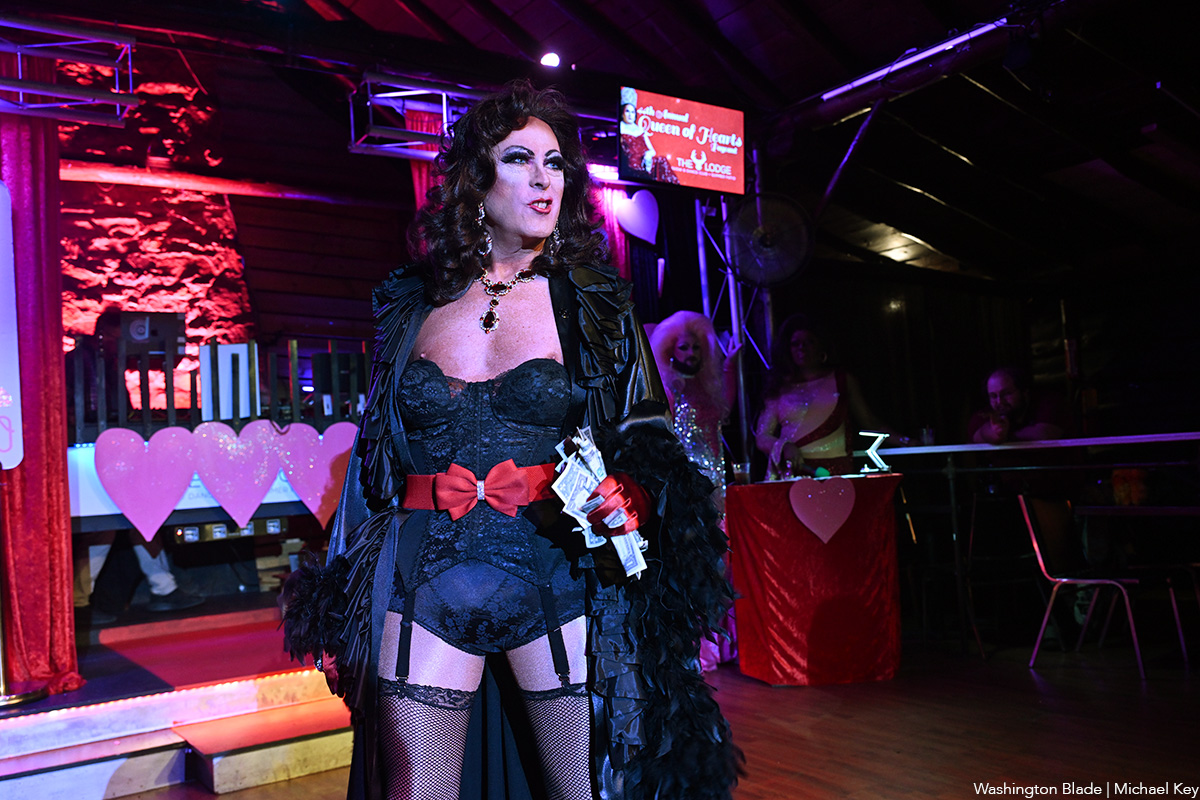
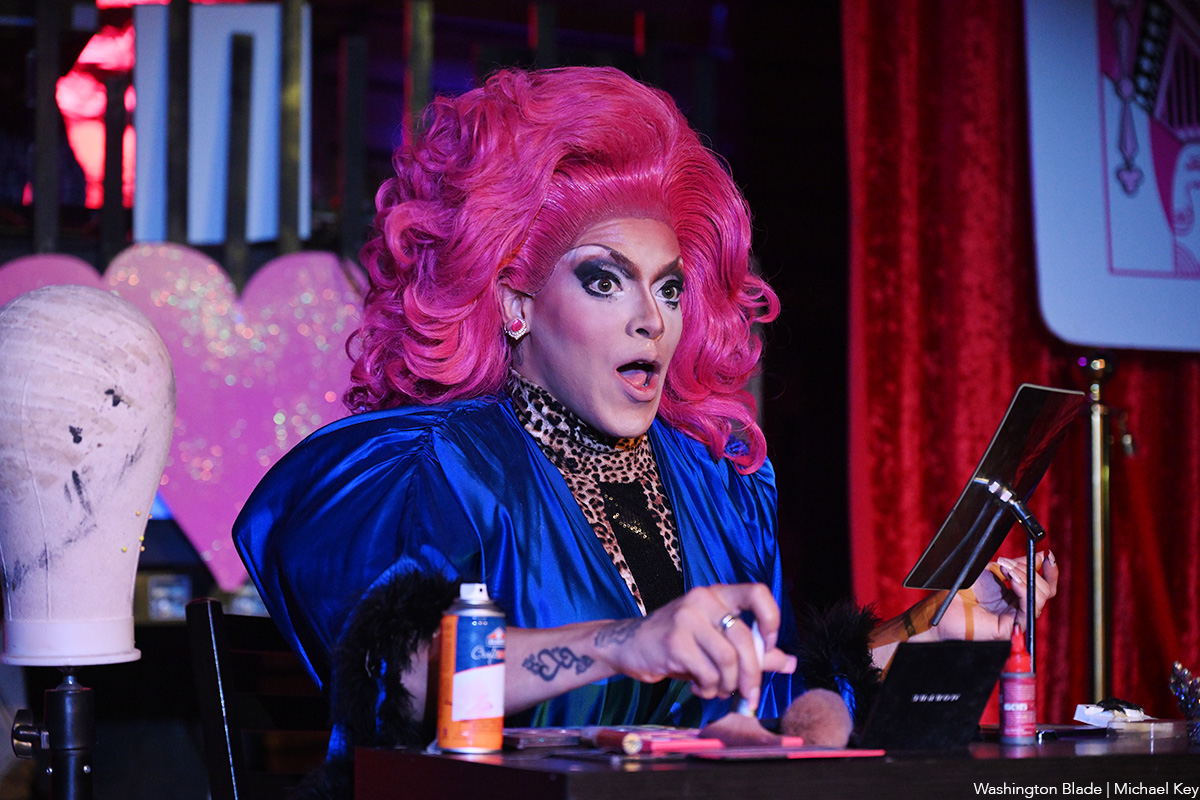
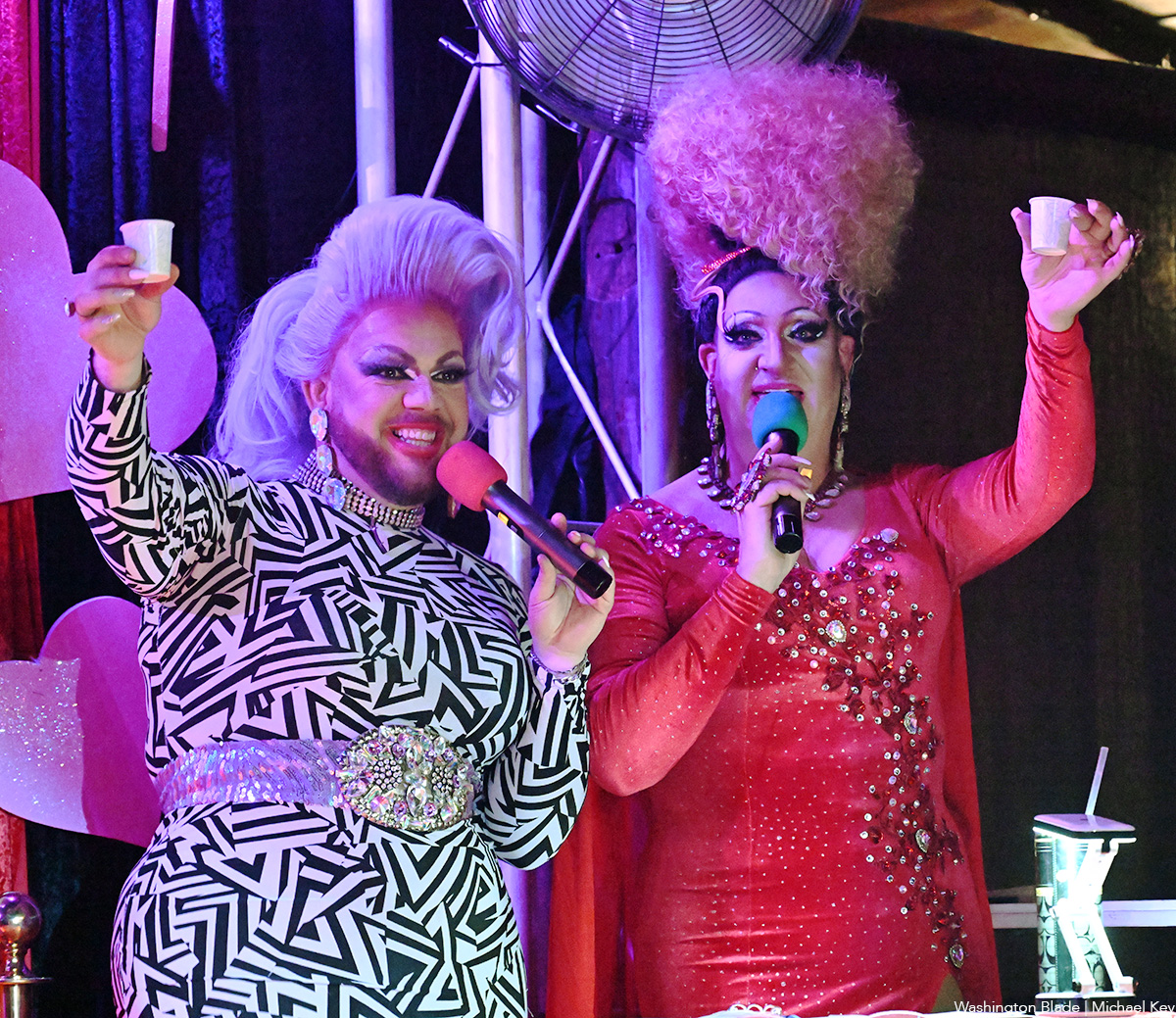
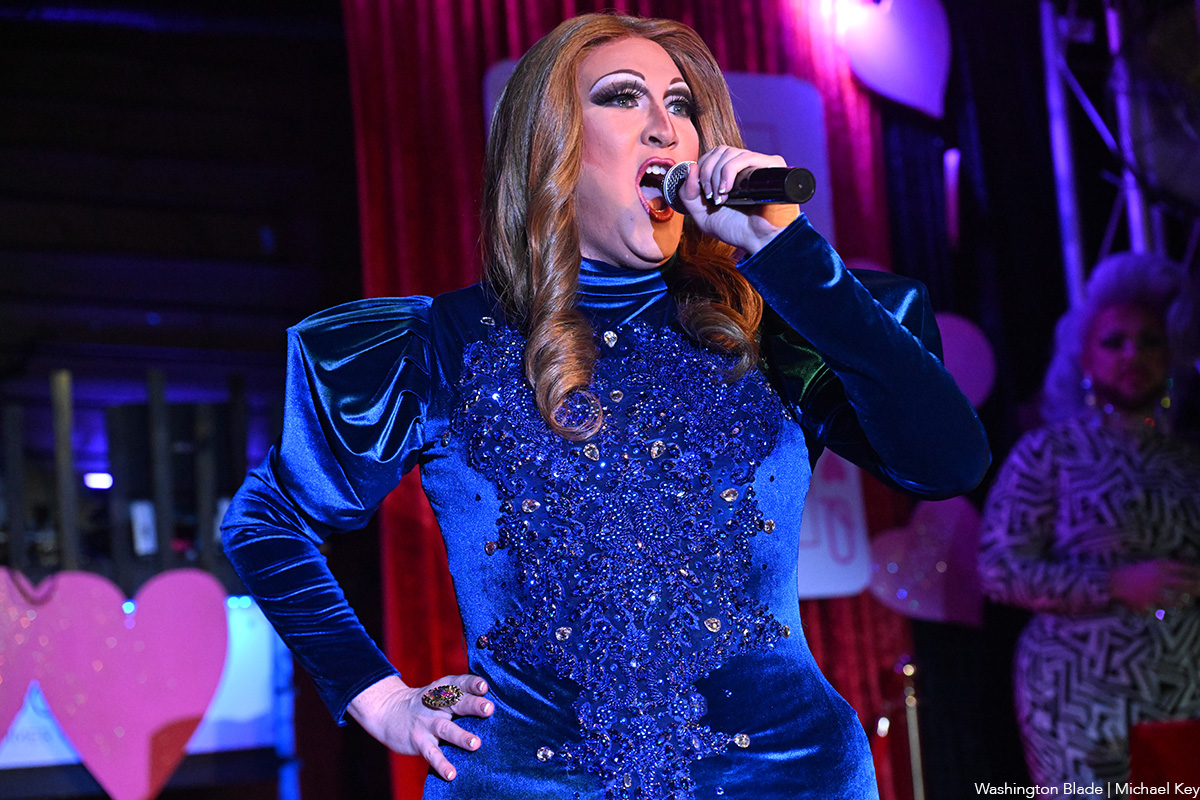
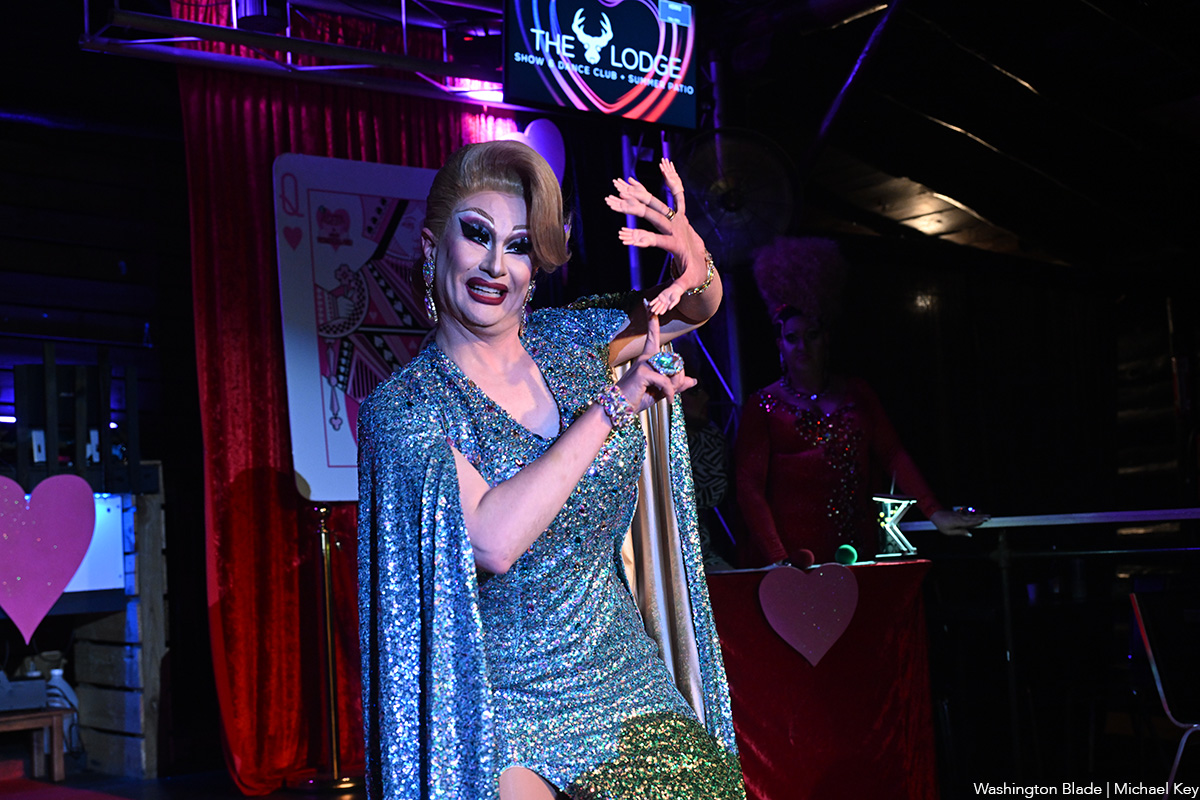
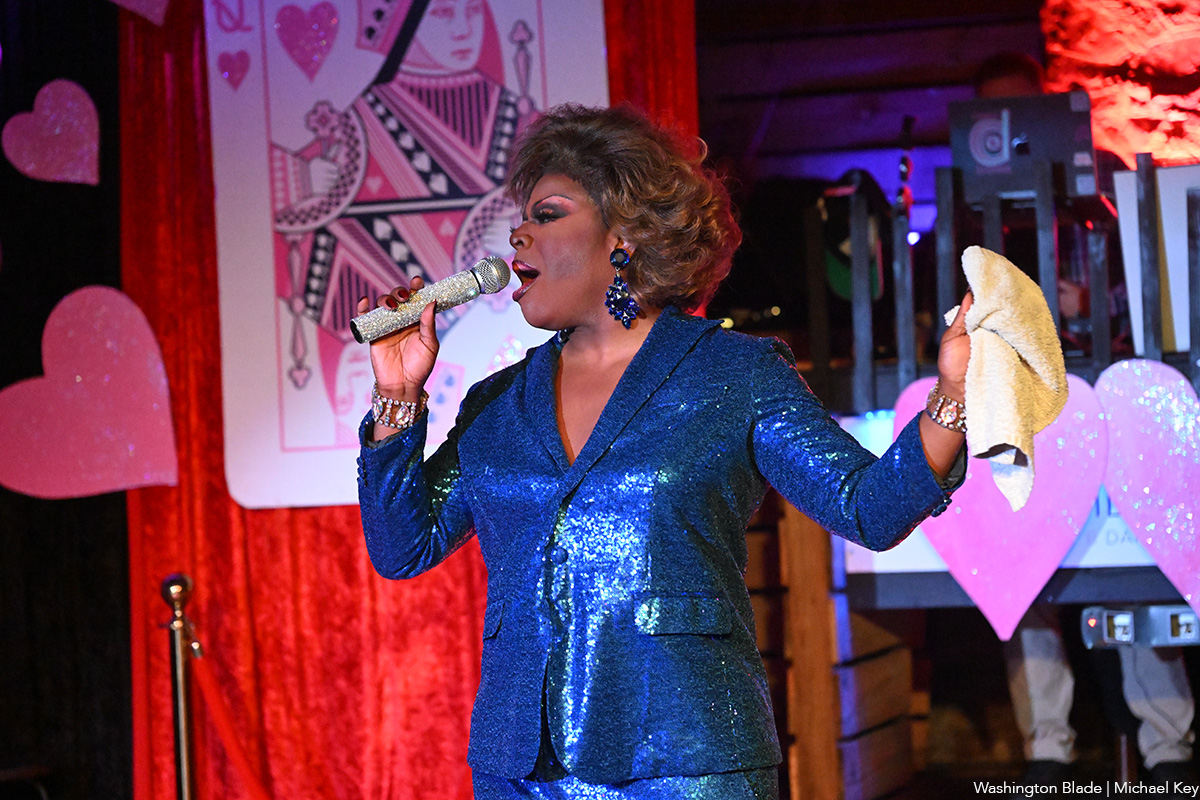
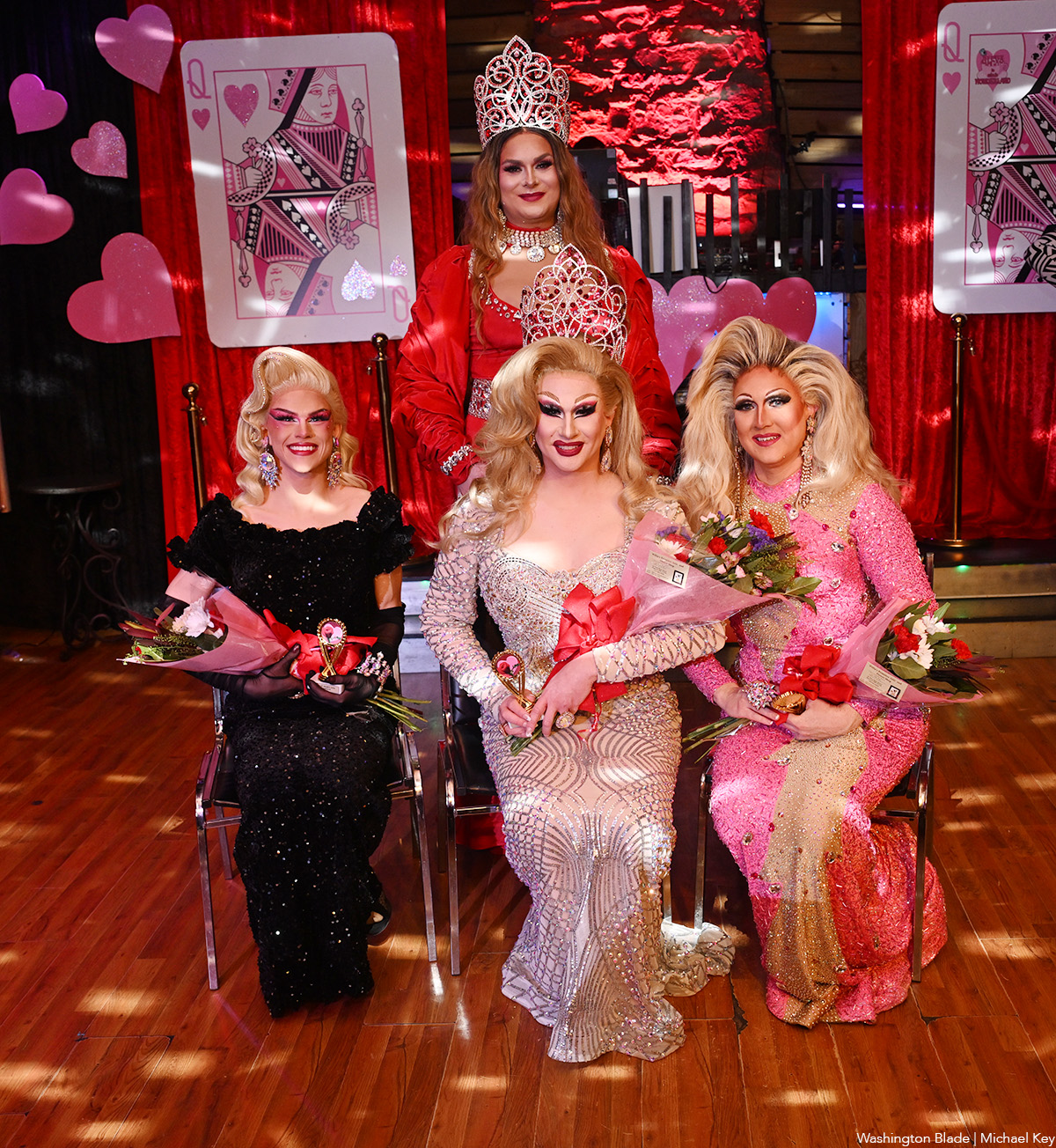
View on Threads
Books
New book profiles LGBTQ Ukrainians, documents war experiences
Tuesday marks four years since Russia attacked Ukraine

Journalist J. Lester Feder’s new book profiles LGBTQ Ukrainians and their experiences during Russia’s war against their country.
Feder for “The Queer Face of War: Portraits and Stories from Ukraine” interviewed and photographed LGBTQ Ukrainians in Kyiv, the country’s capital, and in other cities. They include Olena Hloba, the co-founder of Tergo, a support group for parents and friends of LGBTQ Ukrainians, who fled her home in the Kyiv suburb of Bucha shortly after Russia launched its war on Feb. 24, 2022.
Russian soldiers killed civilians as they withdrew from Bucha. Videos and photographs that emerged from the Kyiv suburb showed dead bodies with their hands tied behind their back and other signs of torture.

Olena Shevchenko, chair of Insight, a Ukrainian LGBTQ rights group, wrote the book’s forward.

The book also profiles Viktor Pylypenko, a gay man who the Ukrainian military assigned to the 72nd Mechanized Black Cossack Brigade after the war began. Feder writes Pylypenko’s unit “was deployed to some of the fiercest and most important battles of the war.”
“The brigade was pivotal to beating Russian forces back from Kyiv in their initial attempt to take the capital, helping them liberate territory near Kharkiv and defending the front lines in Donbas,” wrote Feder.
Pylypenko spent two years fighting “on Ukraine’s most dangerous battlefields, serving primarily as a medic.”
“At times he felt he was living in a horror movie, watching tank shells tear his fellow soldiers apart before his eyes,” wrote Feder. “He held many men as they took their final breaths. Of the roughly one hundred who entered the unit with him, only six remained when he was discharged in 2024. He didn’t leave by choice: he went home to take care of his father, who had suffered a stroke.”
Feder notes one of Pylypenko’s former commanders attacked him online when he came out. Pylypenko said another commander defended him.
Feder also profiled Diana and Oleksii Polukhin, two residents of Kherson, a port city in southern Ukraine that is near the mouth of the Dnieper River.
Ukrainian forces regained control of Kherson in November 2022, nine months after Russia occupied it.
Diana, a cigarette vender, and Polukhin told Feder that Russian forces demanded they disclose the names of other LGBTQ Ukrainians in Kherson. Russian forces also tortured Diana and Polukhin while in their custody.
Polukhim is the first LGBTQ victim of Russian persecution to report their case to Ukrainian prosecutors.

Feder, who is of Ukrainian descent, first visited Ukraine in 2013 when he wrote for BuzzFeed.
He was Outright International’s Senior Fellow for Emergency Research from 2021-2023. Feder last traveled to Ukraine in December 2024.
Feder spoke about his book at Politics and Prose at the Wharf in Southwest D.C. on Feb. 6. The Washington Blade spoke with Feder on Feb. 20.
Feder told the Blade he began to work on the book when he was at Outright International and working with humanitarian groups on how to better serve LGBTQ Ukrainians. Feder said military service requirements, a lack of access to hormone therapy and documents that accurately reflect a person’s gender identity and LGBTQ-friendly shelters are among the myriad challenges that LGBTQ Ukrainians have faced since the war began.
“All of these were components of a queer experience of war that was not well documented, and we had never seen in one place, especially with photos,” he told the Blade. “I felt really called to do that, not only because of what was happening in Ukraine, but also as a way to bring to the surface issues that we’d had seen in Iraq and Syria and Afghanistan.”

Feder also spoke with the Blade about the war’s geopolitical implications.
Russian President Vladimir Putin in 2013 signed a law that bans the “promotion of homosexuality” to minors.
The 2014 Winter Olympics took place in Sochi, a Russian resort city on the Black Sea. Russia annexed Crimea from Ukraine a few weeks after the games ended.
Russia’s anti-LGBTQ crackdown has continued over the last decade.
The Russian Supreme Court in 2023 ruled the “international LGBT movement” is an extremist organization and banned it. The Russian Justice Ministry last month designated ILGA World, a global LGBTQ and intersex rights group, as an “undesirable” organization.
Ukraine, meanwhile, has sought to align itself with Europe.
Ukrainian President Volodymyr Zelenskyy after a 2021 meeting with then-President Joe Biden at the White House said his country would continue to fight discrimination based on sexual orientation and gender identity. (Zelenskyy’s relationship with the U.S. has grown more tense since the Trump-Vance administration took office.) Zelenskyy in 2022 publicly backed civil partnerships for same-sex couples.
Then-Ukrainian Ambassador to the U.S. Oksana Markarova in 2023 applauded Kyiv Pride and other LGBTQ and intersex rights groups in her country when she spoke at a photo exhibit at Ukraine House in D.C. that highlighted LGBTQ and intersex soldiers. Then-Kyiv Pride Executive Director Lenny Emson, who Feder profiles in his book, was among those who attended the event.
“Thank you for everything you do in Kyiv, and thank you for everything that you do in order to fight the discrimination that still is somewhere in Ukraine,” said Markarova. “Not everything is perfect yet, but you know, I think we are moving in the right direction. And we together will not only fight the external enemy, but also will see equality.”
Feder in response to the Blade’s question about why he decided to write his book said he “didn’t feel” the “significance of Russia’s war against Ukraine” for LGBTQ people around the world “was fully understood.”
“This was an opportunity to tell that big story,” he said.
“The crackdown on LGBT rights inside Russia was essentially a laboratory for a strategy of attacking democratic values by attacking queer rights and it was one as Ukraine was getting closet to Europe back in 2013, 2014,” he added. “It was a strategy they were using as part of their foreign policy, and it was one they were using not only in Ukraine over the past decade, but around the world.”
Feder said Republicans are using “that same strategy to attack queer people, to attack democracy itself.”
“I felt like it was important that Americans understand that history,” he said.

More than a dozen LGBTQ athletes won medals at the Milan Cortina Winter Olympics that ended on Sunday.
Cayla Barnes, Hilary Knight, and Alex Carpenter are LGBTQ members of the U.S. women’s hockey team that won a gold medal after they defeated Canada in overtime. Knight the day before the Feb. 19 match proposed to her girlfriend, Brittany Bowe, an Olympic speed skater.
French ice dancer Guillaume Cizeron, who is gay, and his partner Laurence Fournier Beaudry won gold. American alpine skier Breezy Johnson, who is bisexual, won gold in the women’s downhill. Amber Glenn, who identifies as bisexual and pansexual, was part of the American figure skating team that won gold in the team event.
Swiss freestyle skier Mathilde Gremaud, who is in a relationship with Vali Höll, an Austrian mountain biker, won gold in women’s freeski slopestyle.
Bruce Mouat, who is the captain of the British curling team that won a silver medal, is gay. Six members of the Canadian women’s hockey team — Emily Clark, Erin Ambrose, Emerance Maschmeyer, Brianne Jenner, Laura Stacey, and Marie-Philip Poulin — that won silver are LGBTQ.
Swedish freestyle skier Sandra Naeslund, who is a lesbian, won a bronze medal in ski cross.
Belgian speed skater Tineke den Dulk, who is bisexual, was part of her country’s mixed 2000-meter relay that won bronze. Canadian ice dancer Paul Poirier, who is gay, and his partner, Piper Gilles, won bronze.
Laura Zimmermann, who is queer, is a member of the Swiss women’s hockey team that won bronze when they defeated Sweden.
Outsports.com notes all of the LGBTQ Olympians who competed at the games and who medaled.



















